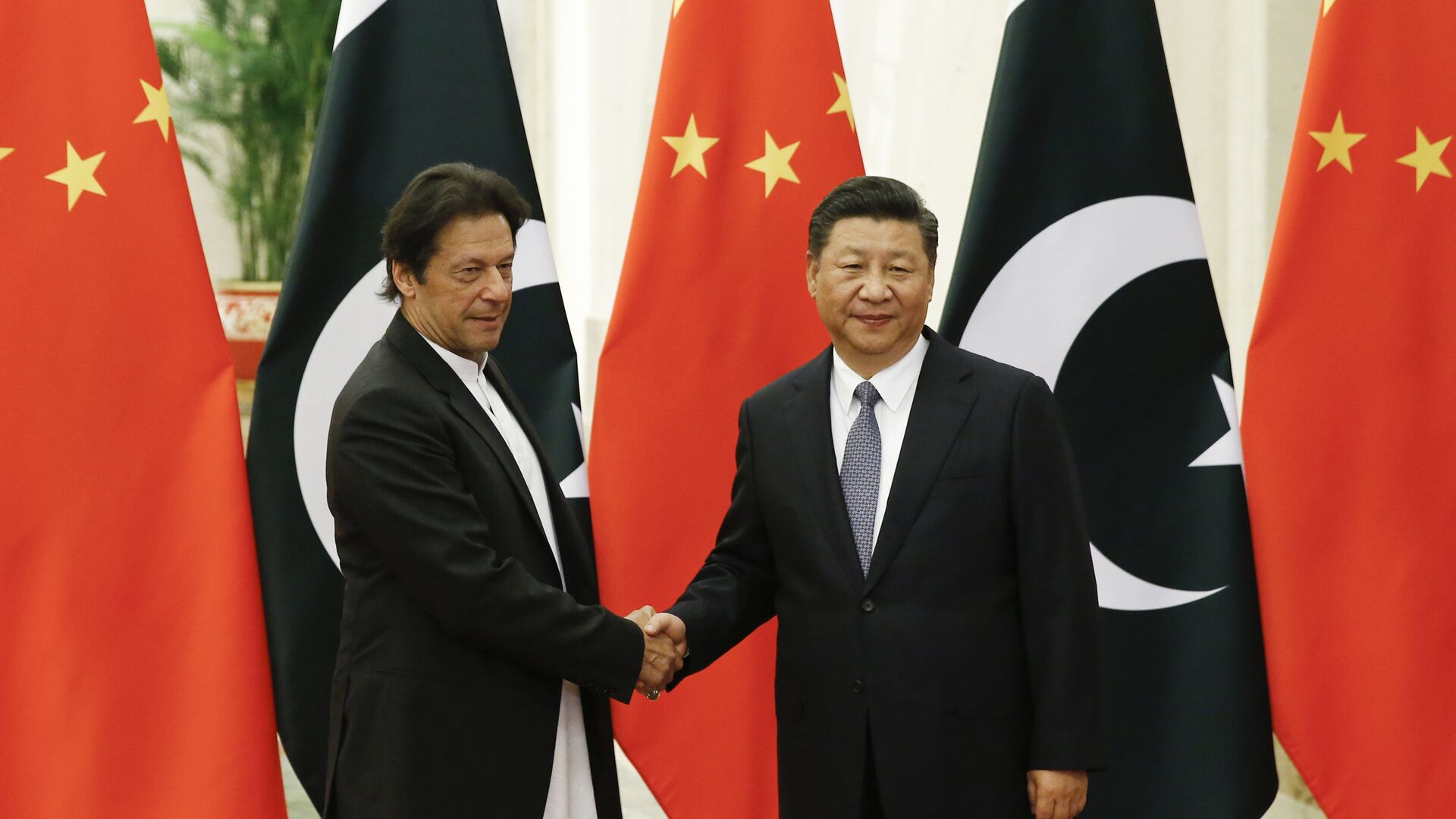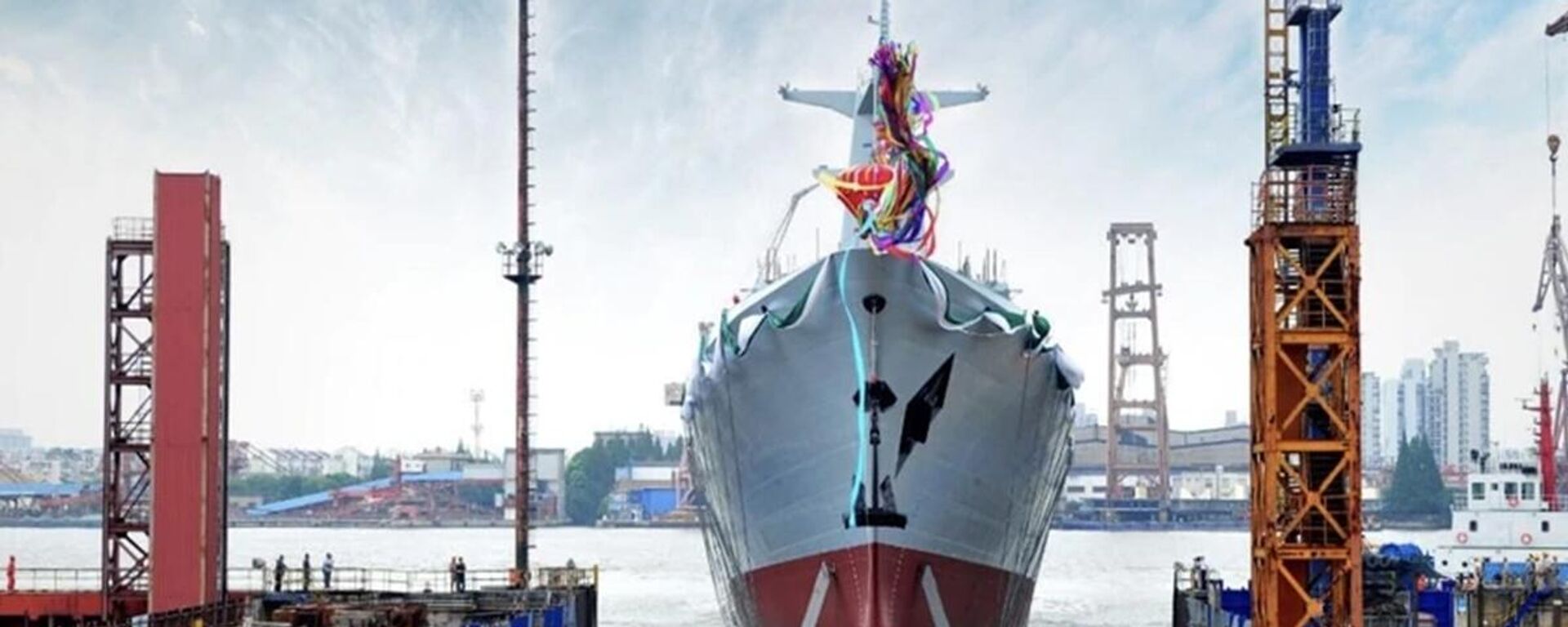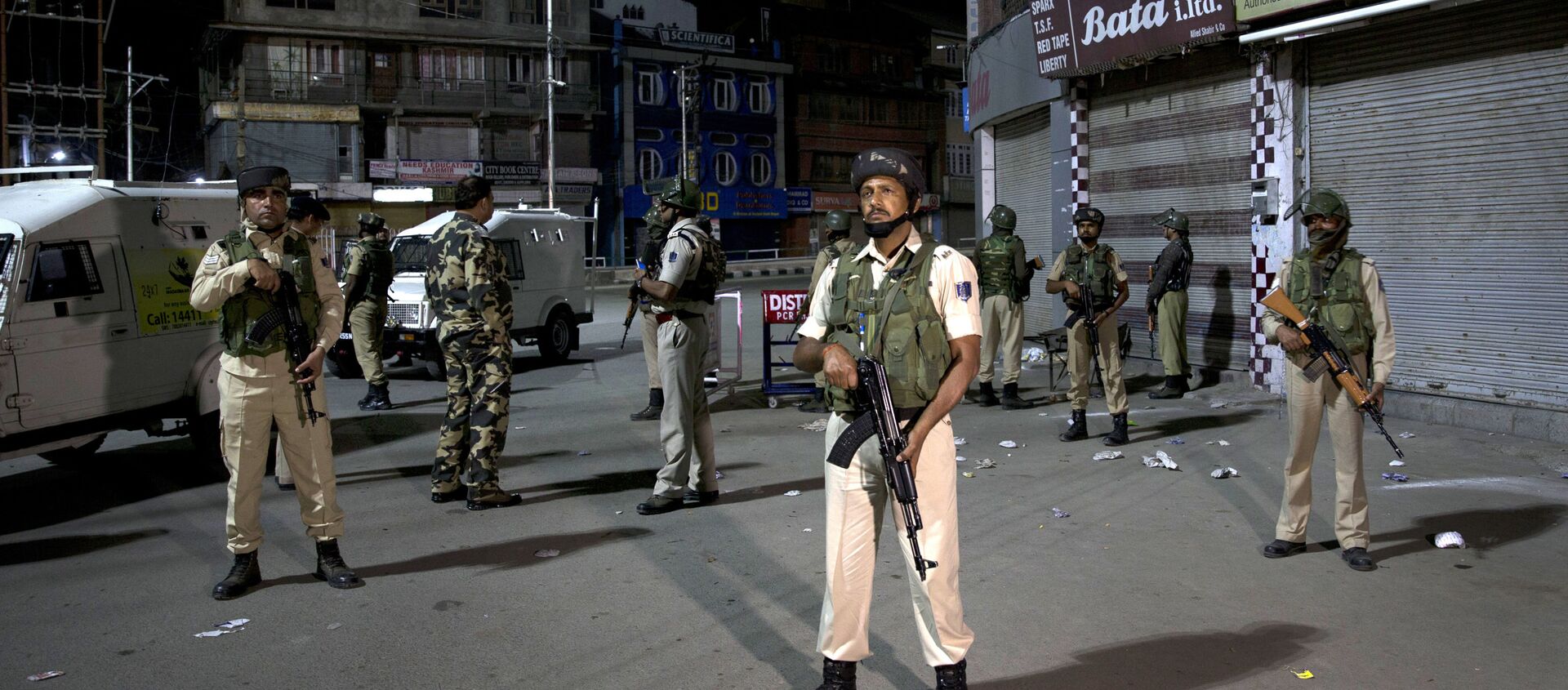US Refuses to Endorse Rahul Gandhi’s Stand That Modi’s Foreign Policy Has United China and Pakistan
07:40 GMT 03.02.2022 (Updated: 18:02 GMT 08.12.2022)

© AP Photo / Thomas Peter/Pool
Subscribe
Indian Foreign Minister S. Jaishankar has rebuffed Congress Leader Rahul Gandhi’s attack on Delhi’s foreign policy under the Modi government, pointing out that Beijing and Islamabad started coming closer in the 1960s and collaborated in nuclear technology in the 70s. He also stated the China-Pakistan Economic Corridor (CPEC) started in 2013.
The United States has refused to back Indian opposition party leader Rahul Gandhi over the latter's blistering attack on Prime Minister Narendra Modi’s foreign policy.
Gandhi, a parliamentarian from India’s main opposition party Congress, on Wednesday accused Prime Minister Modi of committing the “single biggest crime” against the people of the country by uniting Beijing and Islamabad against New Delhi.
“I will leave it to the Pakistanis and the PRC (People’s Republic of China) to speak to their relationship. I certainly would not – would not endorse those remarks,” State Department spokesperson Ned Price said during a press briefing on Wednesday, hours after Gandhi’s speech in the Indian parliament.
BJP is fiddling with things they don’t understand.
— Rahul Gandhi (@RahulGandhi) February 2, 2022
Their policies have united our enemies. The threat is imminent. India has become isolated & surrounded.
The spirit with which I speak is one of discomfort over the state of our nation. We must act swiftly & decisively.
The US official further remarked that Washington never asked countries to “choose between” the US and China, when asked by a reporter as to why Pakistan and China were “working so closely” now.
He went on to describe Pakistan as a “strategic” partner of the US, claiming that Washington valued its relationship with Islamabad “across a number of fronts”.
The US State Department spokesperson’s remarks came hours after Gandhi’s ‘Motion of Thanks’ address to the Indian President Ram Nath Kovind, which was delivered in the lower house of the Parliament.
"The Chinese have a very clear vision of what they want to do. The single biggest strategic goal of India's foreign policy has been to keep Pakistan and China separate. This is fundamental for India and what have you done, you have brought them together," he said.
"Do not be under any illusion, do not underestimate the force that is standing in front of you."
“China and Pakistan were supposed to be two separate fronts… You have converted them into a united front,” remarked Gandhi.
The Congress leader further reckoned in his speech that China seemed to have a “clear-cut plan” vis-à-vis India.
“The foundations of their plans have been put in place in Doklam and Ladakh. Do not underestimate what we are facing. This is a very serious threat to the Indian nation,” he remarked.
The People’s Liberation Army (PLA) has been accused by India of transgressing into Bhutanese territory at the Doklam Plateau in 2017, prompting New Delhi to dispatch its troops to help Thimpu in dealing with the alleged incursion.
At present, Indian and Chinese troops are engaged in a tense standoff in the eastern Ladakh region, which was triggered in May 2020 and remains unresolved to date.
While New Delhi blames China for instigating the military standoff, Beijing says that India’s “forward policy” and its illegal encroachments upon Chinese territory are the “root cause” of the dispute.
The Indian opposition parliamentarian also decried Prime Minister Modi’s “strategic blunder” in Jammu and Kashmir as having contributed to the current state of affairs in New Delhi’s foreign policy.
The apparent reference was to New Delhi’s decision in August 2019 to revoke the semi-autonomous status of the erstwhile Jammu and Kashmir state, a move contested by both Pakistan and China.
The government’s decision has also been protested by the political parties in Jammu and Kashmir and led to massive protests in the Kashmir region when it was first announced more than two years ago.
Gandhi also said that it was a sign of India’s growing “isolation” in its own neighbourhood that it wasn’t able to invite a foreign dignitary as a guest to its annual Republic Day celebrations on 26 January.
The charge was rebuffed by Indian Foreign Minister Subrahmanyam Jaishankar in a social media post.
In Lok Sabha, @RahulGandhi said we could not get a foreign guest for Republic Day. Those who live in India know we were in the midst of a corona wave.
— Dr. S. Jaishankar (@DrSJaishankar) February 2, 2022
The 5 Central Asian Presidents, who were to come, did hold a virtual summit on Jan 27. Did Rahul Gandhi miss that as well?


